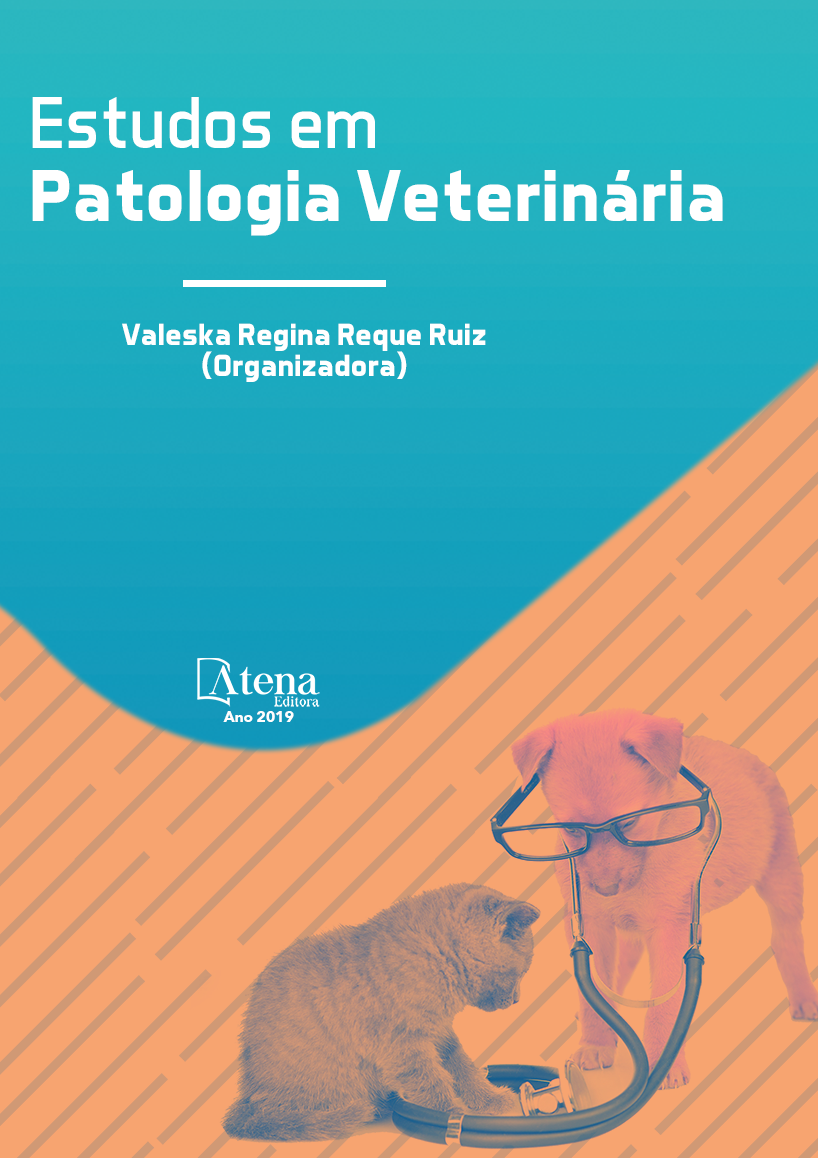
CARRY-OVER E RESISTÊNCIA ANTIMICROBIANA NA UTILIZAÇÃO DE RAÇÃO MEDICADA NA PRODUÇÃO ANIMAL
Este trabalho tem como objetivo
esboçar o perfil parasitológico e geográfico
da Fasciola hepatica no Brasil de acordo
com os dados da fasciolose cadastrados no
SIGSIF. Para tanto, fez-se estudo documental
colhendo informações referentes ao ano de
2003 até o primeiro semestre de 2017, contidas
nos relatórios de Condenação de Animais
por Espécie e Quantitativo de Doenças por
Procedência emitidos pelo SIGSIF no site oficial
do MAPA. Os resultados mostraram distribuição
territorial da fasciolose em dezenove unidades
federativas do país: AM, BA, DF, ES, GO, MA,
Estudos em Patologia Veterinária Capítulo 4 24
MG, MS, MT, PA, PE, PR, RJ, RO, RS, SC, SE, SP e TO; sendo seu perfil parasitológico
caracterizado por sua maior incidência em fígados de bovinos e ovinos. Concluiu-se
que a F. hepatica já é ocorrente em todas as cinco regiões brasileiras, com tendência
expansiva e adaptativa a novos ambientes e hospedeiros.
CARRY-OVER E RESISTÊNCIA ANTIMICROBIANA NA UTILIZAÇÃO DE RAÇÃO MEDICADA NA PRODUÇÃO ANIMAL
-
DOI: 10.22533/at.ed.3101914083
-
Palavras-chave: Bovinos, Fasciolose, Fígado, Relatório. ABSTRACT: This work aims to outline the parasitological and geographic
-
Keywords: Cattle, Fasciolose, Liver, Report.
-
Abstract:
This work aims to outline the parasitological and geographic profile of
Fasciola hepatica in Brazil according to the fasciolose data registered in the SIGSIF.
He made a documentary study collecting information referring to the year 2003 to the
first half of 2017, contained in the reports of Condemnation of Animals by Species and
Quantitative of Diseases by Origin issued by SIGSIF on the official MAPA website. The
results showed a territorial distribution of fasciolosis in nineteen federative units of the
country: AM, BA, DF, ES, GO, MA, MG, MS, PA, PE, PR, RJ, RO, RS, SC, SE, SP and
TO; being its parasitological profile characterized by its higher incidence in bovine and
ovine livers. It was concluded that F. hepatica is already present in all five brazilian
regions, with an expansive and adaptive tendency to new environments and hosts.
-
Número de páginas: 15
- Ivan Bianchi
- Vanessa Peripolli
- Juahil Oliveira Martins Junior
- Fabiana Moreira
- Elizabeth Schwegler
- Luciano Molognoni
- Heitor Daguer
- Leandro Antunes de Sá Ploêncio
- Marcos Back
- Maila Palmeira
- André Barbosa da Silva


